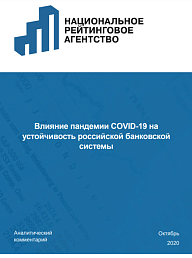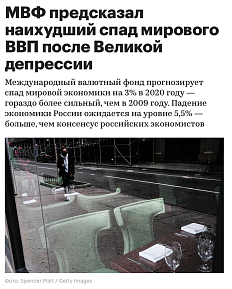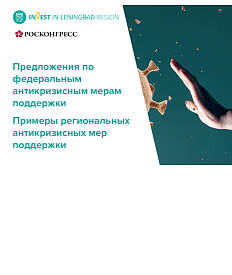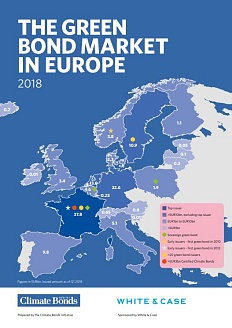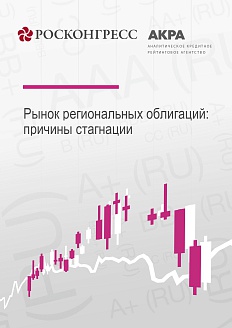The National Rating Agency has prepared a study on the impact of the COVID-19 pandemic on the banking system: its stability, restructuring opportunities, quality of loan portfolios and reserve creation processes.
The Roscongress Foundation presents the salient points of the publication accompanied by fragments of broadcasts of relevant panel discussions from the business programme of international events held by the Roscongress Foundation.
Deterioration of financial condition of borrowers with restructured loans is underestimated.
The study notes that, by the end of 2020, if banking institutions will recognise the deterioration of the quality of the entire volume of restructured loans in the amount of RUB 6.1 trillion, the share of problem and bad loans (IV-V quality category) in the banking sector may reach 20% of the total portfolio.
Worsening payment discipline in the corporate sector and the population due to the consequences of the COVID-19 pandemic will reduce the quality of assets and profits of the banking system for at least 12 months.
Small and medium-size enterprises (SMEs) were in the worst financial situation because of the COVID-19 pandemic.
Small and medium-size enterprises suffered the largest financial losses due to the consequences of the pandemic, as they are mainly represented in the segments most affected by the crisis — services to the public and trade in non-food goods. This especially affected companies that did not have an established system of online sales.
The study notes that by the end of the year the share of non-performing/problem loans, together with a portion of restructured loans to SMEs whose credit quality has not been restored, may exceed 20% of the total SME loan portfolio.
The banking system will be stable due to the accumulated capital buffer for 12 months.
According to the assessment of the Bank of Russia, at the moment the banking system has accumulated a capital buffer in the amount of about RUB 5.9 trillion, which is enough to absorb potential losses on the loan portfolio at the level of 10.4% and to fully cover the impairment losses of all restructured loans at the beginning of September.
According to the authors of the research, the volume of the capital buffer in the sector is sufficient to cope with even a one-step refreshment of reserves for all restructured loans at the end of the year at 96%.
For more information about construction as a sector with a sizeable share in many economies, rising level of digitalization, and shifts in consumer sentiment in real estate, please see the COVID-19, StayHomeEconomy, Banking and Financial market.


